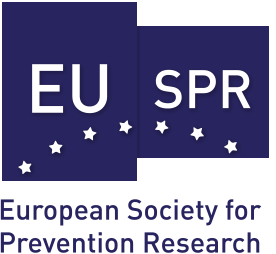Speaker
Description
Authors: Inna Feldman (Public Health and Caring Science, Uppsala University), Emanuela Pires (Public Health and Caring Science, Uppsala University), Andrea Manzano, Anneli Ivarsson (Department of Epidemiology and Global Health, Umeå University, Sweden), Anni-Maria Pulkki-Brännström (Department of Epidemiology and Global Health, Umeå University, Sweden), Masoud Vaezghasemi (Department of Epidemiology and Global Health, Umeå University, Sweden), Filipa Sampaio (Public Health and Caring Science, Uppsala University)
Background: Poor social-emotional functioning is a risk factor that has been linked with mental health problems later in childhood, adolescence and adulthood. Therefore, the early detection and addressing of social emotional problems are crucial. The aim of this study was to assess the long-term cost-effectiveness of a population-based screening to detect social-emotional problems with ASQ:SE at 3-years-old combined with the evidence-based parenting intervention Incredible Years (IY), provided to parents of children with social-emotional problems.
Methods: A decision-analytic Markov model was developed, to compare two alternatives: 1) all 3-years-olds get screened for social-emotional problems (anxiety and attention deficit hyperactivity (ADH) problems), and parents for children above clinical cutoff receive IY parenting program; 2) no screening and no intervention (“do nothing”). The population and prevalence data on social-emotional problems in 3-year-olds was sourced from Västerbotten Region (Sweden). A cohort of 3-year-olds with social-emotional problems was modelled until they are 19 years old, as they transitioned through the states at risk anxiety, ADH problems, and dead. The effectiveness of IY was sourced from published literature. The analyses were done from a limited societal perspective including costs of screening, healthcare costs, and loss of productivity. Health outcomes were expressed as disability-adjusted life-years (DALYs) averted.
Results: Screening with ASQ:SE combined with the parenting intervention IY demonstrated lower costs (incremental cost -€102,083) and more DALYs averted (incremental DALYs 16.42) than no screening and no intervention. The combination of screening and intervention strongly dominated the comparator and the likelihood of the combination saving money is high, 99 %.
Discussion. Successful implementation of population-based screening for social-emotional problems combined with an effective evidence-based parenting intervention is good value for money and might be an important way to contribute to sustainable and efficient healthcare system in Sweden.
| Conflict of interest | No conflict of interest |
|---|

